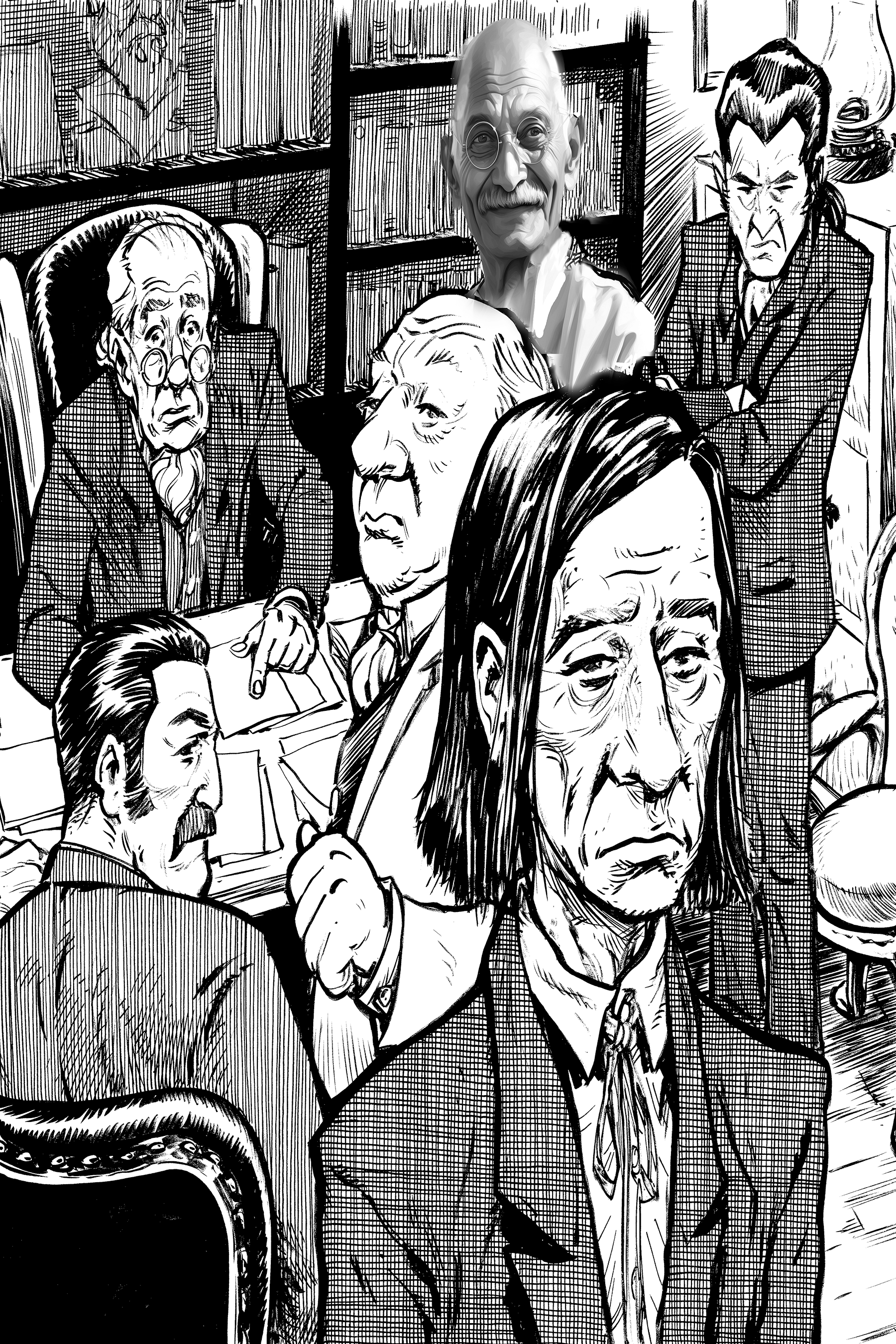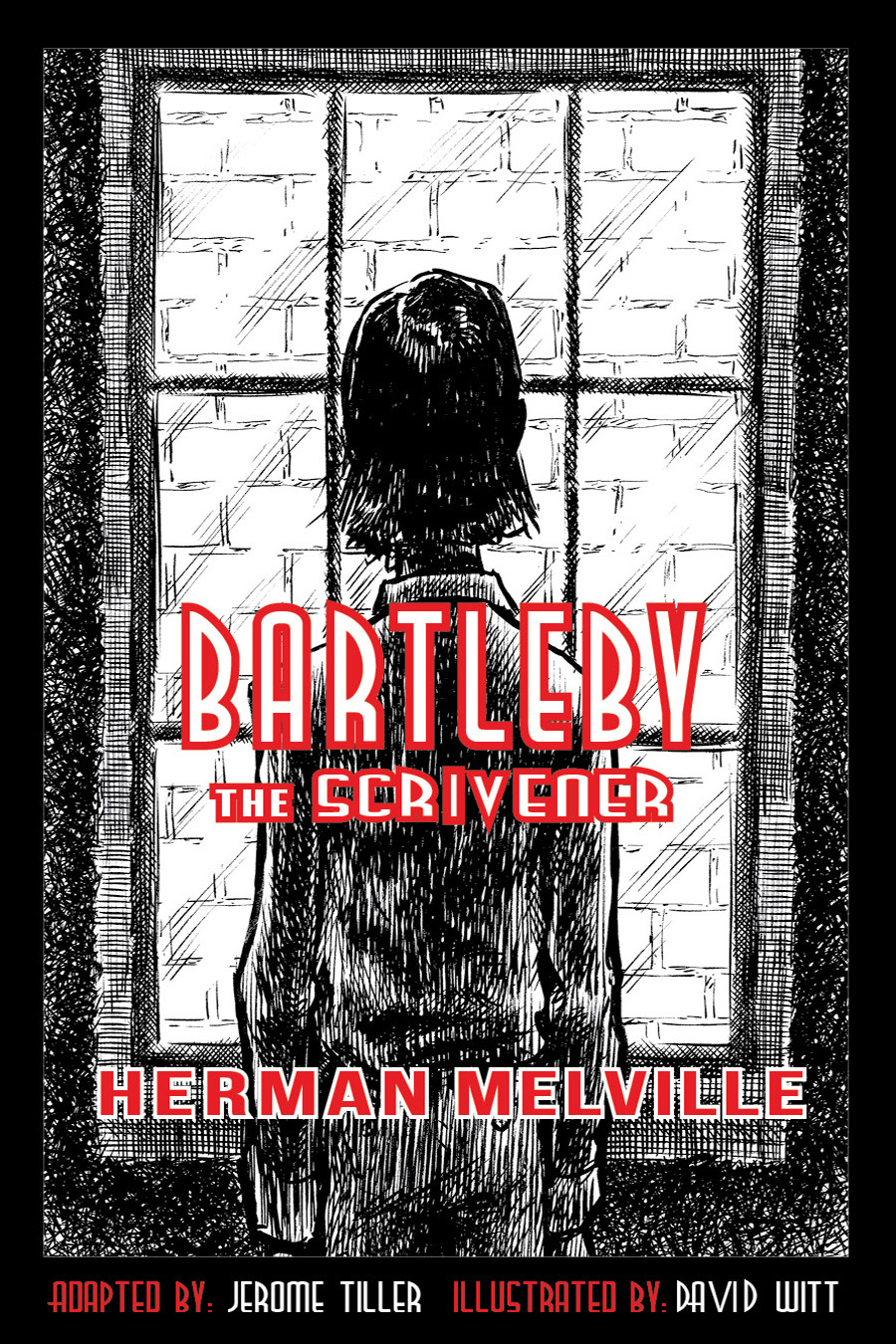Who did Gandhi imitate?
It don’t make no sense most ways, I admit, but you can’t ignore the evidence neither. Could the one and only Mahatma Gandhi have been influenced by a character he experienced around the same time that its creator, the author who made-up that character, was getting rediscovered by literary geeks in 1915, some fifty years after that author died broke, him being dead all that long before he finally became famous, as he now is and will forever remain, that author being Mr. Herman Melville? Furthermore, could this rediscovery of Melville just coincidently happen about the same time the redoubtable Mohandus Mahatma Gandhi was just beginning to be a non-cooperating social justice activist and these be just two incidental happenstances with nothing whatsoever that links them? I suppose so, but who knows? Read on.
So moving forward to satisfy your curiosity since you are still with me, just who is this character that Herman Melville made-up out of his fertile mind that we are speculating about? Not Captain Ahab, not Ishmael, not Pierre, and not Billy Budd—no, not none of them—but instead that character who like Gandhi is redoubtable but not replicable, a character Melville made up to be like Gandhi long before Mohandus Gandhi was born, a character who just like Gandhi never preferred to cooperate; this special character that Melville personified (or to a large degree personified) is the inimitable Bartleby the Scrivener.
But come on now—be serious! Would the one and only Mahatma Gandhi really bother and/or stoop to imitate this inimitable Herman Melville character? And why in the first place would I say Bartleby was the character that Gandhi imitated? Especially as if anyone would ever dare say that Gandhi ever imitated anyone, for which there is no proof. Since I suspect and nearly understand that you would prefer not to think any least little bit of this is true—no way no how—let’s take a closer look.
In 1920 Gandhi invented for real, not just in theory, the first non-cooperation movement anywhere, that shook everything up real good right off and eventually it was all for the best for the people there where he was operating this social movement for the purpose of letting the British know they weren’t welcome in India with their bossy ways, and that their game was up and they were not to be the boss of the Indian people no more.
Now where a smart, well-educated guy like Gandhi, who was fluent in the English language because the British poked their business into everywhere he ever lived, meddling in everybody else’s affairs wherever they were, and probably carrying their fiction books around with them for reading in their spare time, too, and maybe forgetting them on a park bench or in a cafe like I sometimes do; just where a smart, well-read guy like Gandhi, who certainly also had a library card, got his idea for non-cooperation is exactly what we are speculating about. Just five years before Gandhi began to establish and execute his non-cooperation movement, Herman Melville had finally become quite the rage, in North America, but everywhere else too with English as the language. Melville did not just have Moby Dick to his great credit to cause this rage, but he became all the rage for his abundant talent and for his works of fiction overall, which were quite a few and all great. So ain’t it reasonable to suppose that a smart guy like Gandhi heard about this Melville guy and took an interest in him especially since Melville had just lately become all the rage? I say so.
As for Bartleby’s part in all this, a key thing in Gandhi’s non-cooperation movement was him trying to persuade each and every Indian to withdraw their labor from any activity that kept the status quo going seamlessly in India. So didn’t Gandhi, in directing his non-cooperation movement, also have his followers refuse to obey certain laws, demands, orders and commands? Yes he did! Do you see any resemblance to Bartleby here? I know you do.
In a recent blog post on this site, an argument was made that Herman Melville created Bartleby to make a personal statement about the materialistic culture that was affecting his prospects for success as an author. Melville was a nose-to-the- grindstone kind of author who didn’t have an opportunity to be non-cooperative with anybody but himself and his compulsive nature. So instead he creates a character who takes a solitary stand against the status quo on Wall Street. That this Bartleby character took his stand much too far in the end is beyond question, but not at all unlike many of Gandhi’s followers, who were nonviolently civil in the pursuit of the movement’s goals and who martyred themselves right in the face of their violent oppressors. The real difference here is that everyone knew what the Gandhi movement and his follower’s motives were, whereas nobody to this day precisely knows and never will what motivated the silent, solitary Bartleby.
There. I rest my case. I never led you to believe I had any proof. All along I did not hide it’s all been speculation. Take it for what you will then. I will leave you, however, with a modification of one of David Witt’s spectacular illustrations that you will find intact and unaltered in the Adapted Classics version of Bartleby the Scrivener. It’s mostly for your enjoyment, but also for your deep consideration of the argument I have been making all this time. My main idea is to continue to persuade you, but you can’t help but enjoy this illustration my way or in your own way, or for that matter fail to enjoy any illustration by David Witt wherever you might find one.



